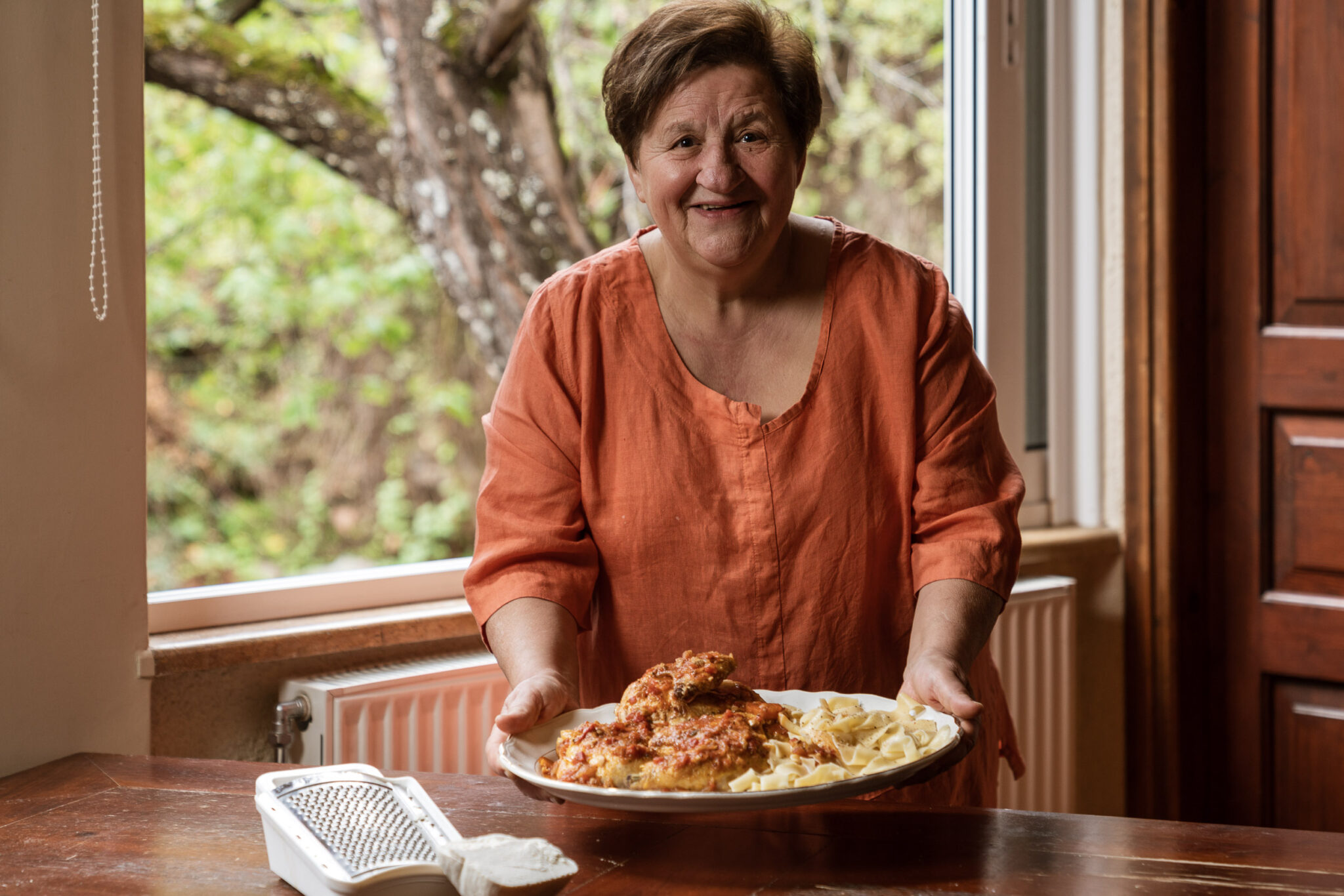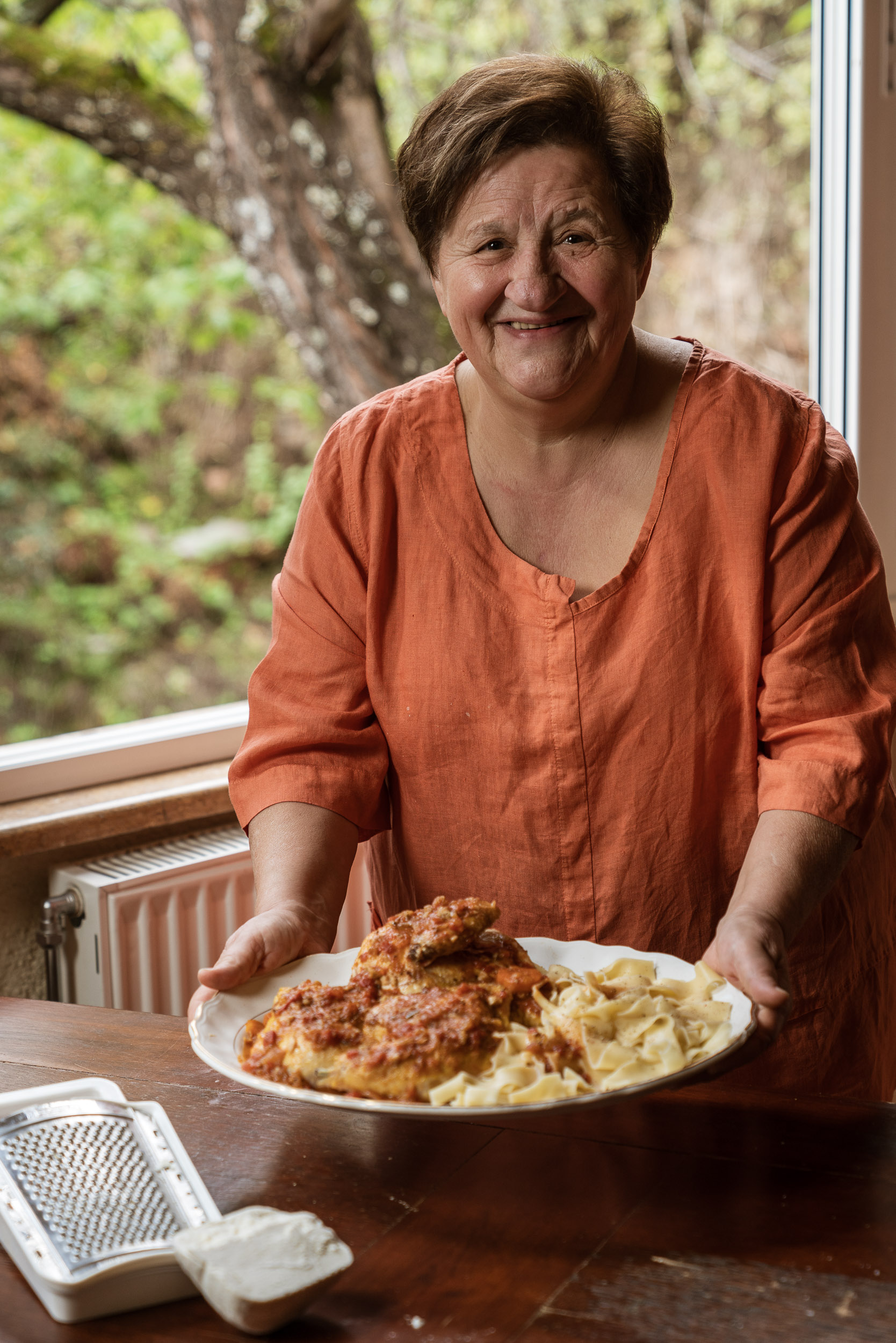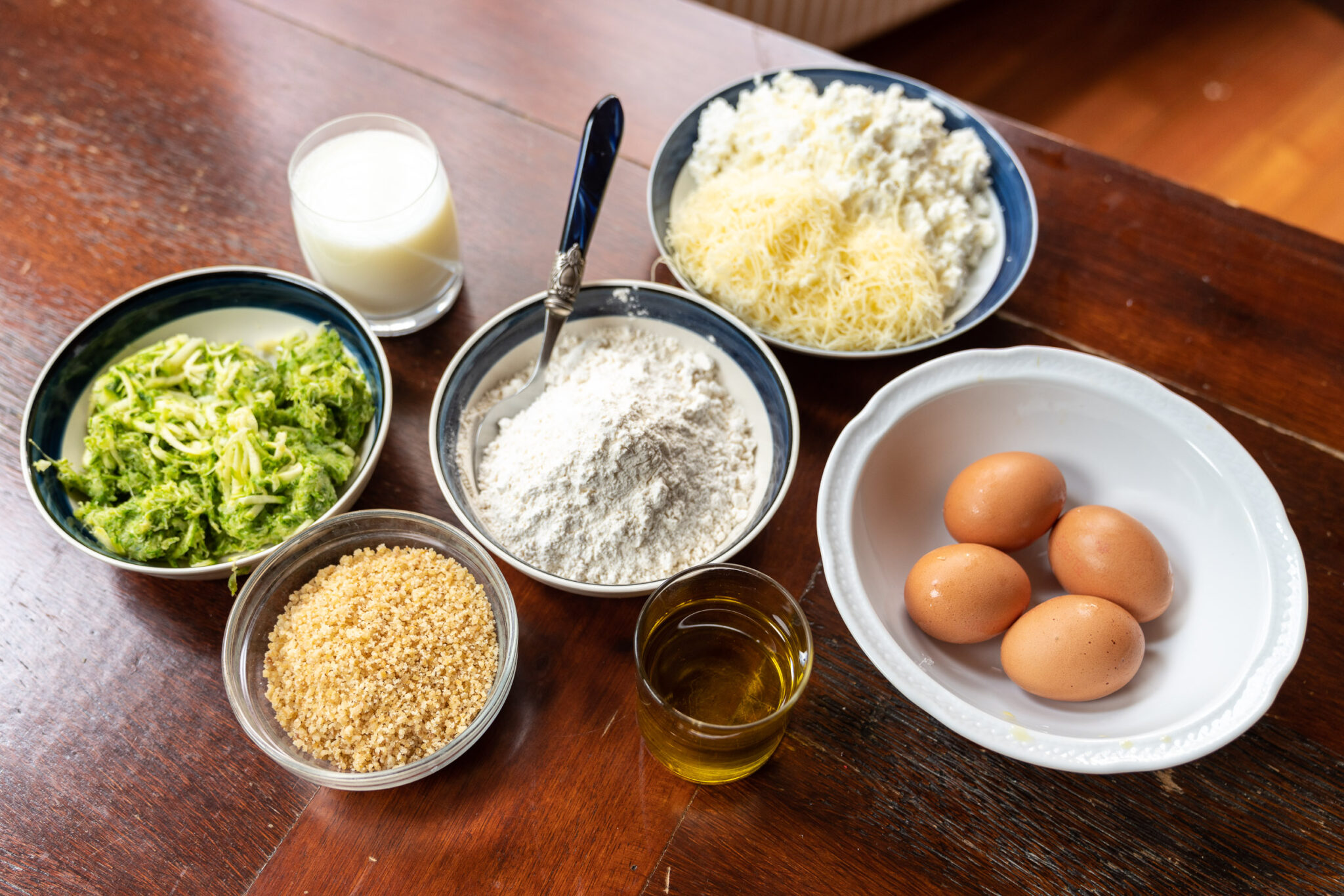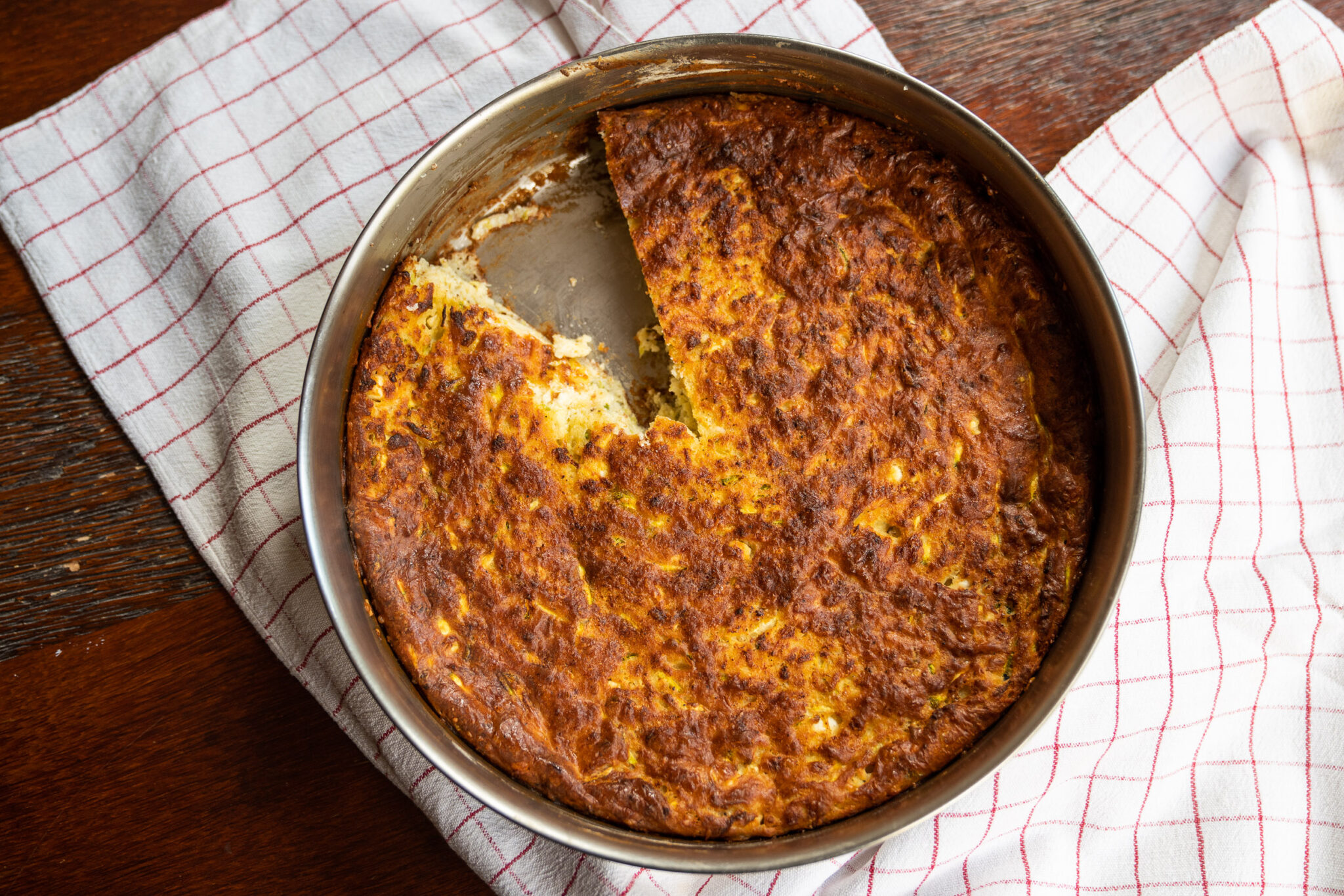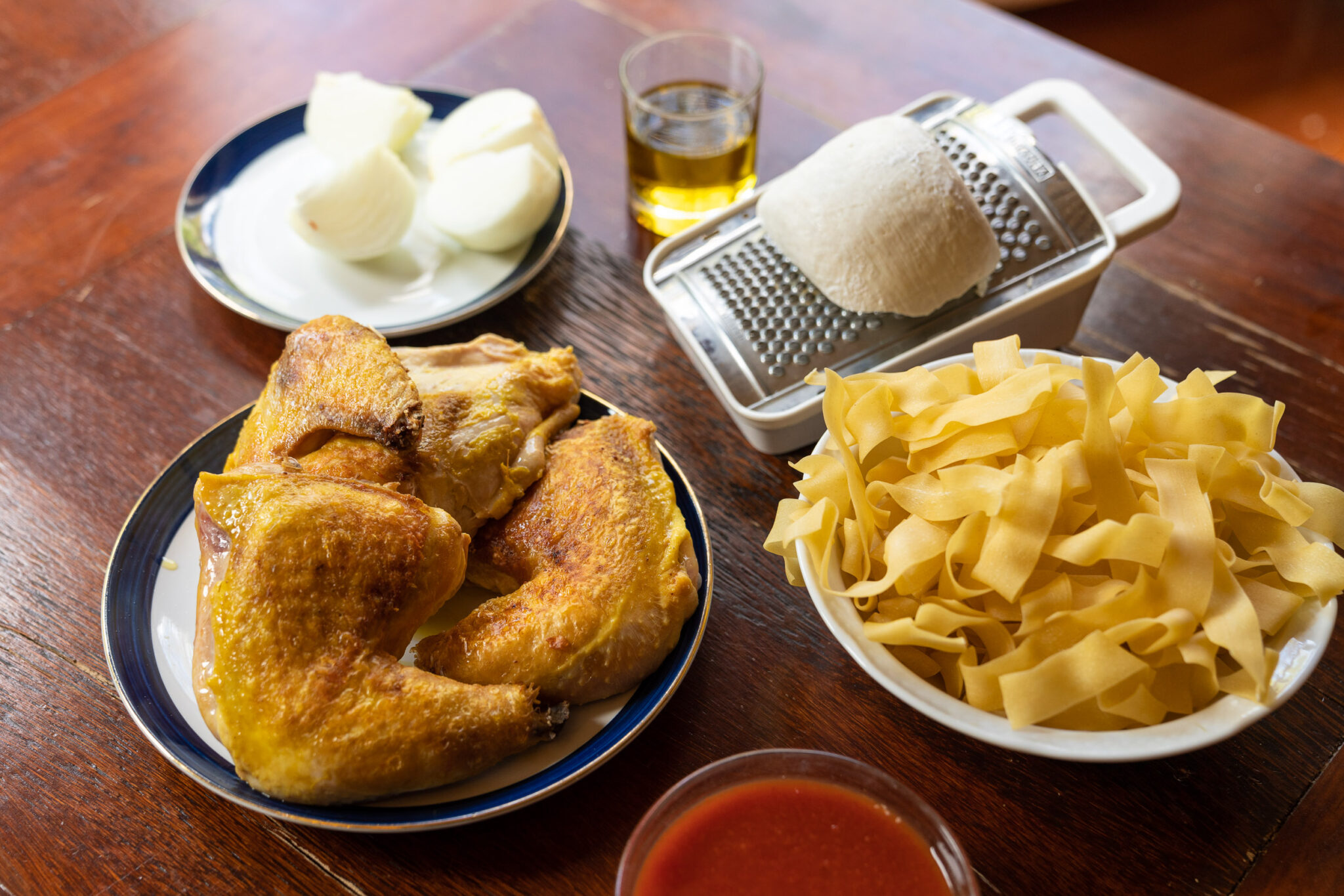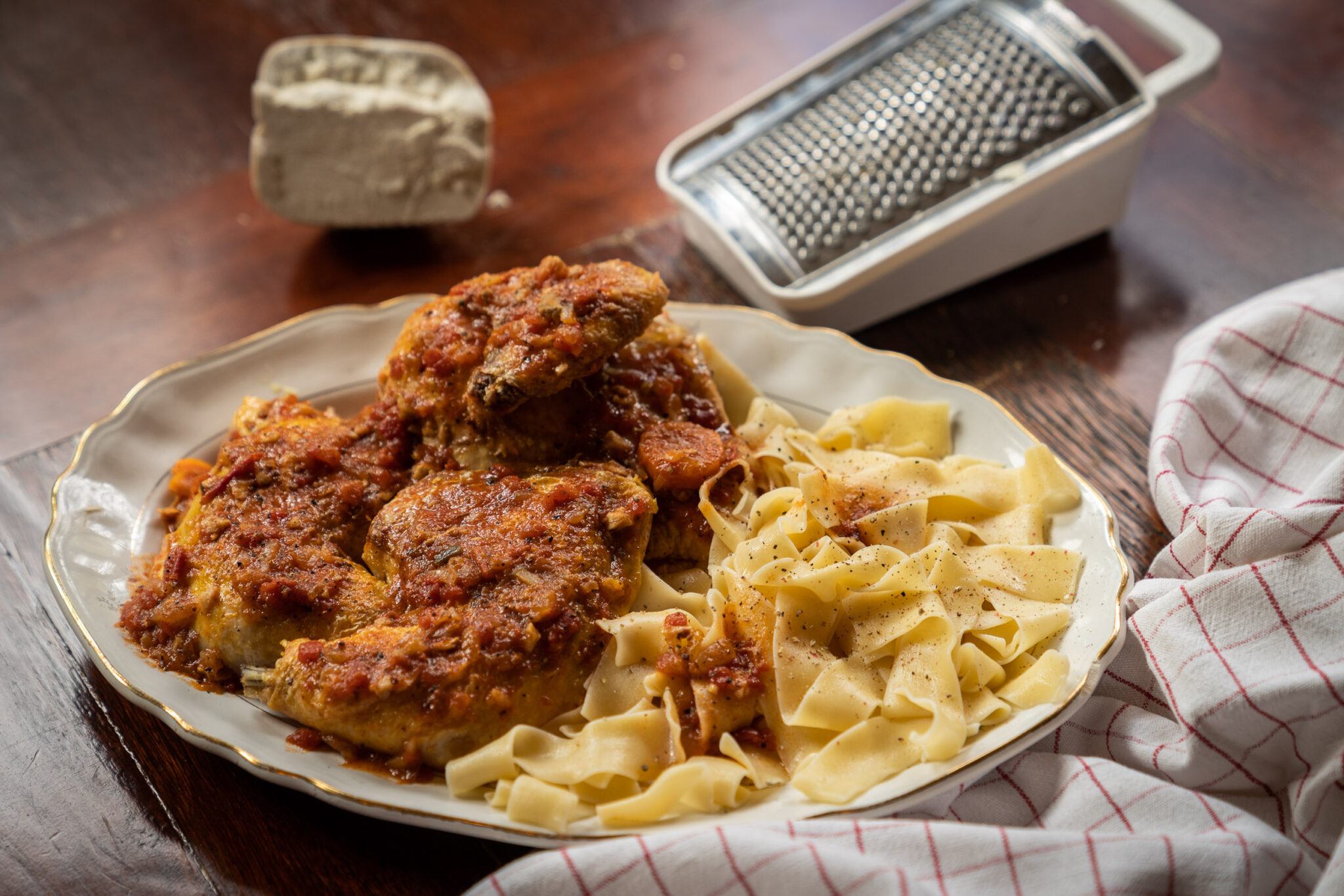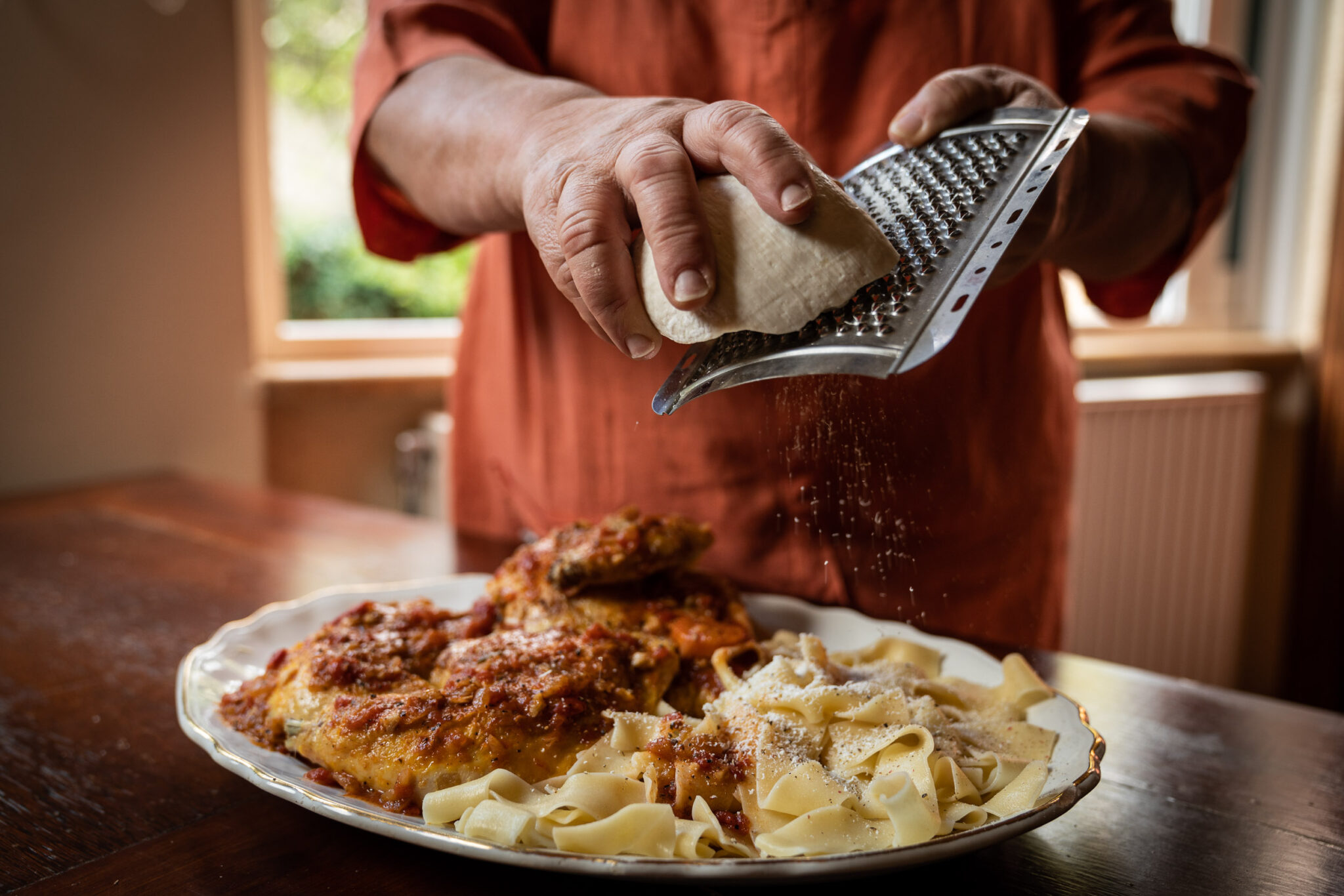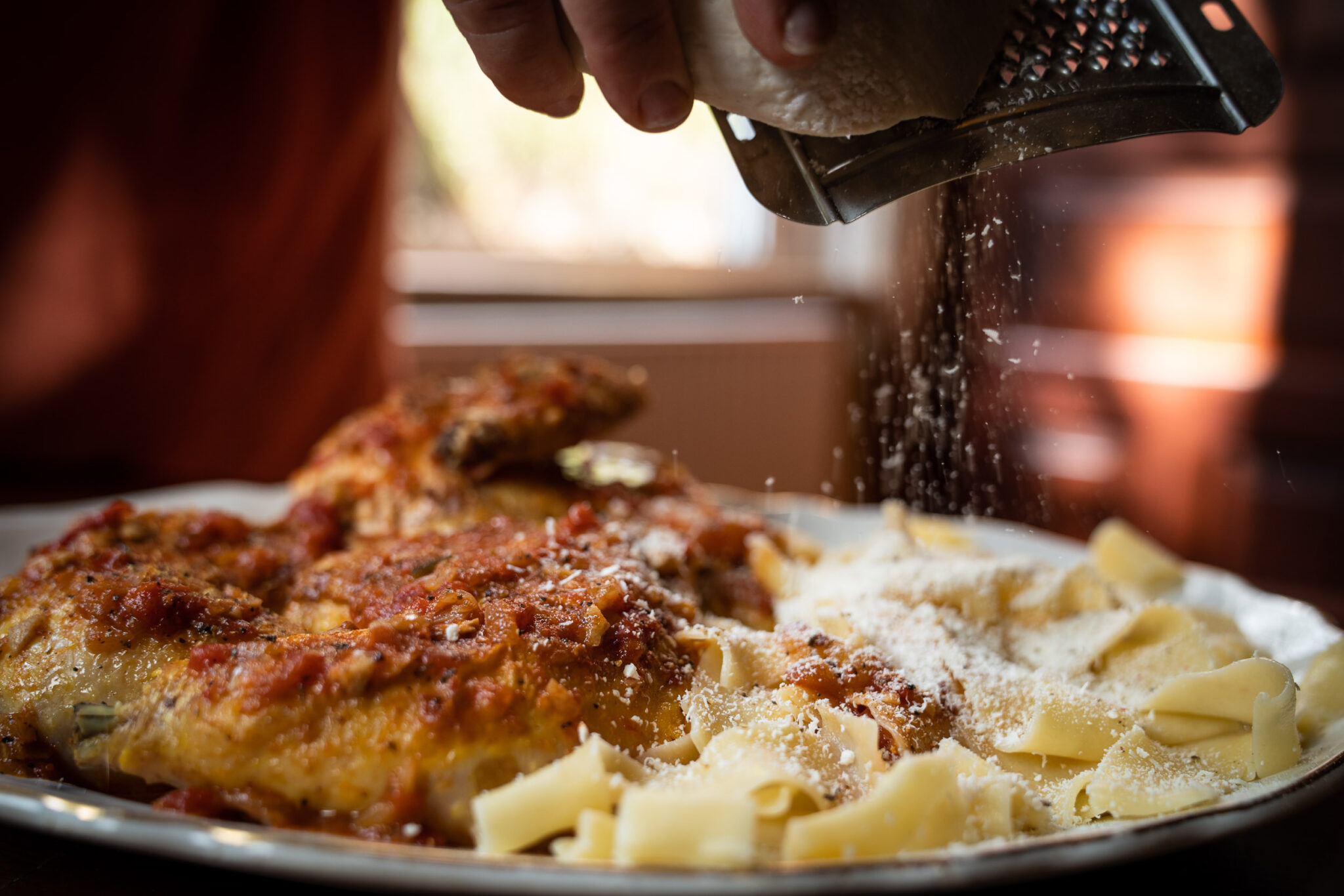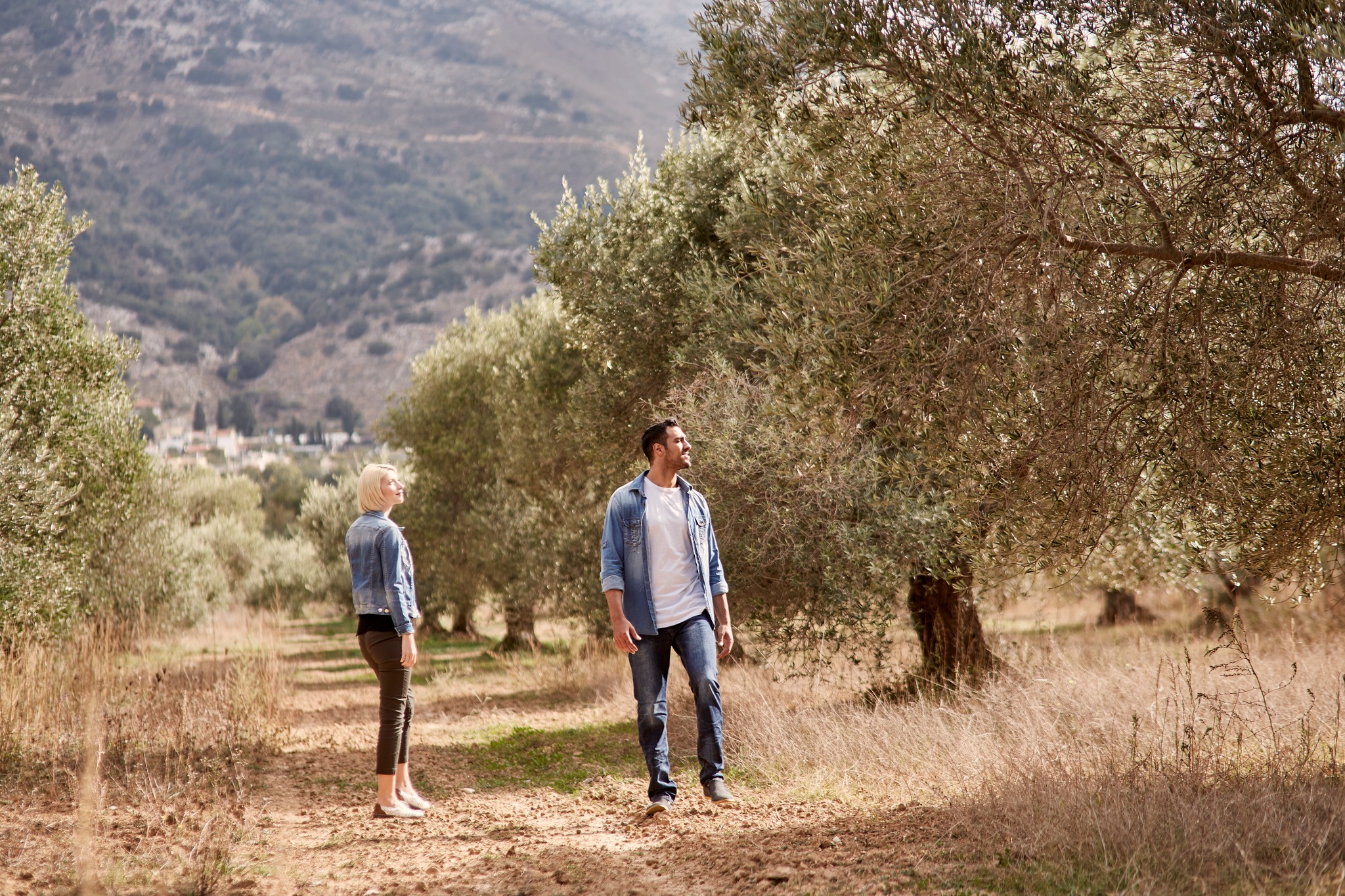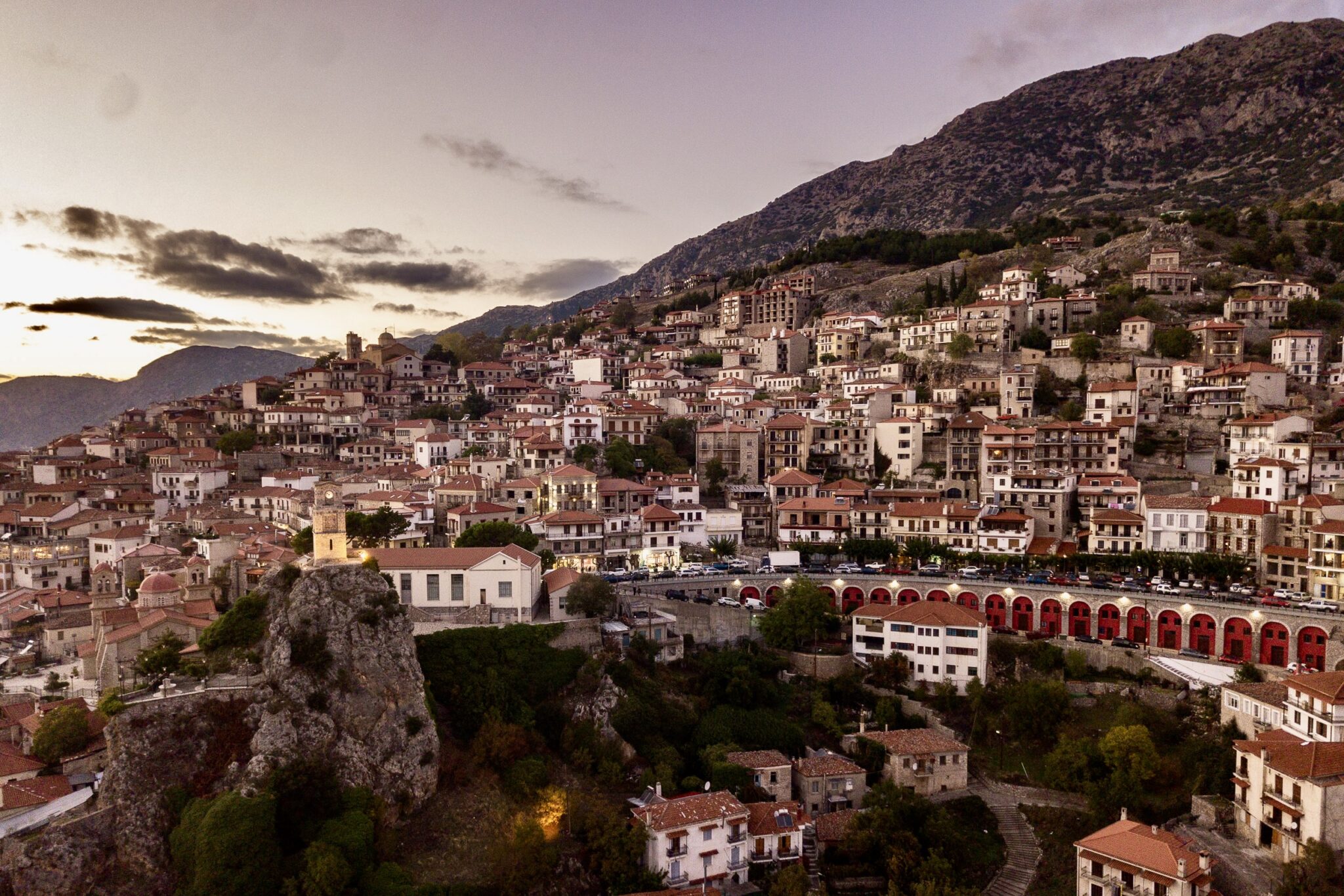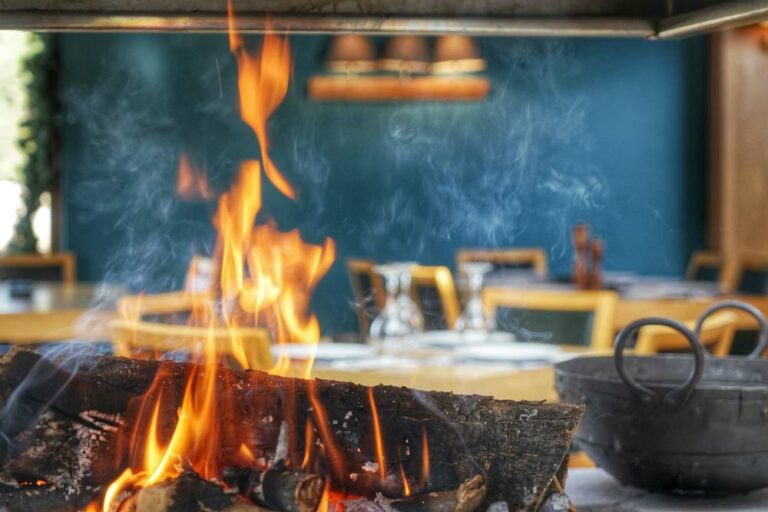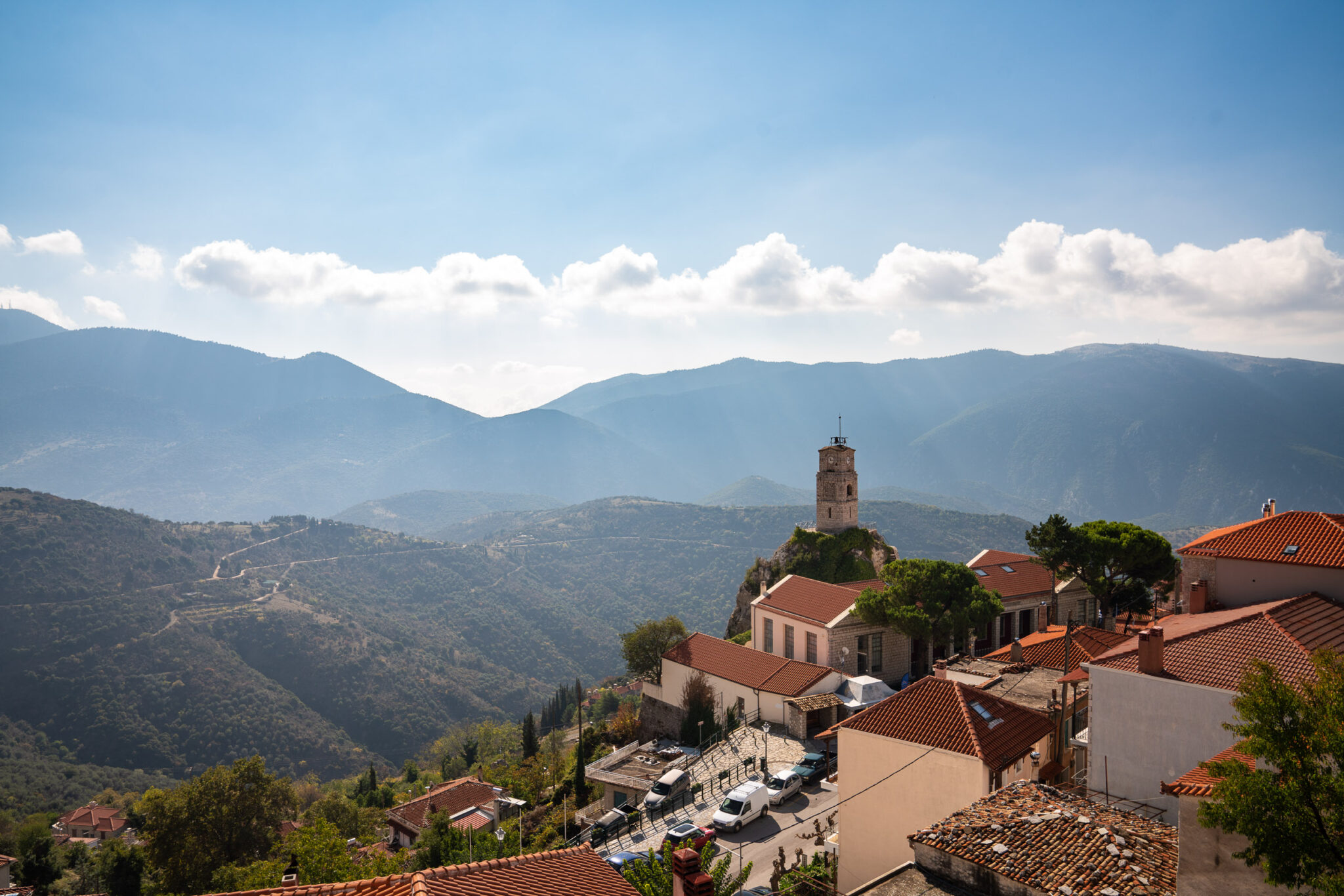Nothing about Aktida Koritis is usual, not even her name. She takes care of her family – she has two children and three grandchildren-, her friends and customers, who are like friends to her. Truthful, spontaneous, generous, a rock of endurance. A self-taught cook, she has spent 38 years among pots, pans and stoves, the last 20 of which in the kitchen of her own restaurant, called “Oestrus by Aktida” in Papaioannou Square in Arachova. From early morning she oversees everything, from the kitchen to the bar and service. Until what time? Until whatever time is needed.
Talking about Arachova’s traditional cuisine, olive oil is the first thing she mentions. “Our cuisine is based on olive oil – look at the olive grove that stretches towards Delfi, we have always had plenty of it. In the old days, every household used to grow pulses in Livadi and people cooked really often chickpeas and fava beans (yellow split peas). I make a dish with chickpeas and eggplants, a truly scrumptious dish. We do not make a lot of pies, as they do in other regions. We only make cheese pie, cheese and spinach pie and the so-called “psarela”, the one I made for you*. It’s easy to make, hearty and delicious. Our meat was always lamb or goat. The place was full, there were pens, stables. Roasting, braising, grilling; we are very familiar with all meat cooking methods. As for dessert, we traditionally make amygdalota (chewy almond macaroon biscuits), walnut pie, as we have a lot of walnut trees, diples (traditional fried pastry rolls dipped in honey syrup), which we call “kokotakia”. My favourite dishes from our local cuisine are the lamp with greens and the braised rooster with hylopites (traditional Greek, small, square-shaped pasta) that we made”.
But what he really loves is fresh seafood. “But how can someone who has spent their whole life in mainland Greece, surrounded by mountains, love seafood so much?”, we ask. “I don’t know how or why, but I loved them from the first moment I tried them. Fish, shellfish, shrimps, crayfish, cuttlefish, octopus, squid, everything. And that’s why my restaurant is the only one in Arachova that serves fresh fish and seafood. I used to go once a week on one-day trips to Thessaloniki to buy fresh fish and seafood, which I would bring back with me”.
What does she do if and when she has any spare time? “I dine in nice seafood restaurants to expand my culinary horizons”.
Traditional recipes from Arachova by Aktida Koritis
Psarela pie
Ingredients
1 cup trahana
1 medium size courgette, grated
4 eggs
250 gr self-raising flour
250gr Gouda cheese, grated (or any other similar cheese)
250gr feta cheese, grated
1 glass of milk
Method
Preheat the oven to 170C. Butter and flour a baking pan. Mix all the ingredients well until you have a thick batter and pour the mixture into the baking pan. Bake for 30-40 minutes or until the surface is golden brown. Allow the pie to cool slightly for fifteen minutes before serving.
Braised rooster with hylopites
Ingredients
1 rooster about 2 k.
300 -400 g fresh grated tomatoes
1 glass of dry white wine
¾ cup extra virgin olive oil
2 medium onions, finely chopped
2 medium carrots sliced
4 cloves of garlic, finely chopped
Half an orange with peel well washed and cut into three
5-6 grains of allspice
Salt, Pepper
hylopites for the side
Method
Cut the rooster into portions. Heat the olive oil in a large non-stick pan and fry the rooster on all sides until golden.
Remove from the pan and set aside. Add the onion, garlic and orange to the pan and sauté over medium-low heat for about 15 minutes or until soft. Add the wine and when the alcohol has evaporated, add the tomatoes, salt and pepper and allspice and bring to boil.
Transfer the sauce to a casserole with a lid or a wide, low saucepan. Place the rooster pieces on top of the sauce. If you are using a casserole, cover with the lid and bake in preheated oven for about an hour. If you are using a saucepan, cook over low heat for about an hour and 20 minutes. Serve with hylopites.
* “Psarela” is also found in the traditional cuisine of Lokrida, behind Parnassos, only there they call it “kourkouti” or “kourkouto”.



